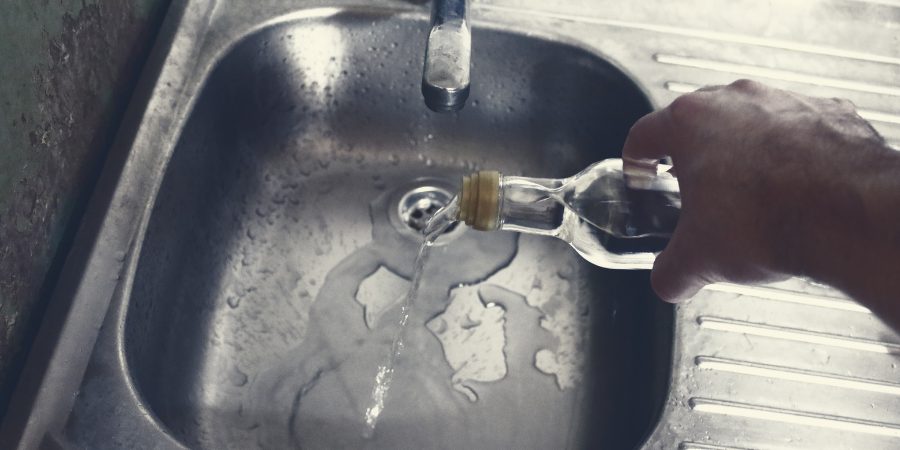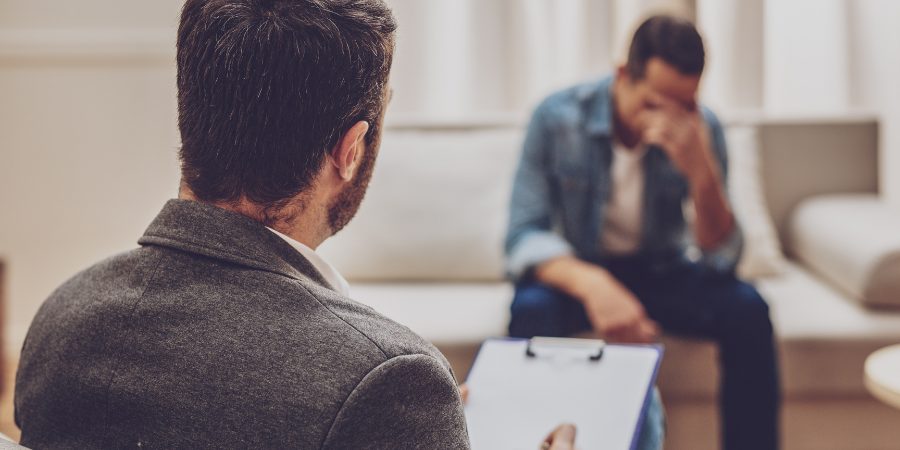
Written by:

Medically Reviewed by:
Last Updated:
April 10th, 2025
The 12 step programme
The 12-step programme is a form of therapy which provides clients with a set of twelve clear steps towards addiction recovery. These steps are structured to create a beginning-to-end transformation from the early stages of acceptance all the way to rebuilding your connection with others.
This page explains how the 12-step recovery programme can be a hugely helpful method of addiction rehabilitation. Informed by spiritual virtues such as compassion and altruism, the steps encourage you to reflect on your lifestyle choices, understand the cycle of addiction and learn to free yourself from your struggle with addictive substances or behaviours.

Roots of the 12-step programme
Established and first practised by Alcoholics Anonymous (AA) in the 1930s, the process of completing your 12 steps required you to accept that you cannot control your addictive behaviour or substance abuse. Once you have opened yourself to receiving help from others, you can begin to make amends with yourself and with others by accepting the guidance of a ‘higher power’.
Some non-religious people may be concerned that the 12-step programme might not work for them if they do not subscribe to the religion of Christianity. However, a study published in the American Psychiatric Publishing Textbook of Substance Abuse Treatment discovered that when clients “become involved in SHGs [self-help groups], less religious individuals appear to derive as much or more benefit from them as more religious individuals do”.
You can interpret your ‘higher power’ to be a person or it could also be an acronym. For instance, ‘GOD’ could stand for ‘Good Orderly Direction’. It could also be something meaningful to you, such as a family member, friend, a religious God or your support group.
At its core, the 12-step recovery programme aims to help you access your inner sources of spiritual strength. The later steps teach you how acting with honesty, compassion, open-mindedness and altruism can help you to become a happier and healthier person. No longer consumed by substance abuse or addictive behaviours, giving back to others can help you to heal and continue to make a holistic addiction recovery.
Your 12 steps to recovery
Is the 12-step programme effective?
If you decide that the 12-step programme is not the right treatment for you, we provide an alternative at Oasis Runcorn. Here, we offer the Strengths model programme to those who do not wish to participate in 12-step therapy.
However, ongoing research indicates that the 12-step programme is a very effective treatment for addiction rehabilitation as part of a holistic treatment programme comprising detox, different therapy types and aftercare. Although the programme originates from AA, the 12-step framework is now widely implemented across many rehab clinics. This therapy is utilised in inpatient rehab for:

12-step therapy is also implemented in group settings through outpatient fellowships such as:
- Alcoholics Anonymous (AA)
- Narcotics Anonymous (NA)
- Gamblers Anonymous (GA)
- Eating Disorders Anonymous (EDA)
- Food Addicts Anonymous (FAA)
12-step programme at inpatient rehab
Starting your 12 steps to recovery at AA or on your own can be difficult if you are not sure how to properly implement the guidelines into your daily routine. One of the greatest benefits of attending an inpatient programme at a residential rehab centre is that our specialist therapists can walk you through the 12-step programme book known as the ‘Big Book’. Their expertise allows you to understand the book and learn what each step entails.
Most UKAT’s inpatient programmes seamlessly integrate the transformative power of 12-step therapy within our comprehensive treatment approach. By embarking on your wellness journey with UKAT, you will also gain the advantages of dialectical behavioural therapy (DBT). Expertly combined with 12-step therapy, this highly effective therapeutic modality harnesses the profound techniques derived from cognitive behavioural therapy (CBT), further enhancing your path to lasting recovery.
- Twenty-eight-day programme – you will probably reach step two or three
- Twelve-week programme – you will probably reach step seven

It is not possible to complete the 12-step programme at rehab. Everybody completes the steps at their own pace and it’s important not to rush through them. Our highly trained therapists introduce you to the programme and will teach you the tools you need to complete each of the steps once you leave the rehab centre.
Our team will help you understand what each step means and support you with step assignments. You might wish to look at our example timetable to see how our holistic therapy schedule uses 12-step rehab as an effective framework for your inpatient treatment.
Your support group and therapists will ask questions and listen to your story, helping you create a plan to continue the 12 steps once you leave residential rehab. At UKAT, our therapists will be at your side during your treatment programme, but also during your one year’s free aftercare to ensure your continued support in completing the 12 steps throughout your addiction recovery.
How can the 12-step programme help you?
The 12-step programme provides you with clear-cut guidelines which aim to replace addictive thoughts and behaviour with positive, productive and achievable goals. Many clients who have completed their 12 steps to recovery find that you get out of it what you put into it. If you are genuinely motivated to overcome addiction, the steps are a useful tool to help you reassess your priorities and implement a healthy routine. However, they cannot do the work for you, and they require motivation. Once you accept your struggle, you can begin to refocus your life goals and open yourself to the support of your therapist, family and friends.

The programme sets you on a trajectory for self-improvement from step one to step twelve, with each new step building upon the last to teach you how to reflect, rather than dwell, on your actions. This form of therapy encourages you to accept responsibility for your actions and choices in the past, allowing you to understand how they have contributed to your struggle.
Once you complete your 12 steps to recovery, you will emerge with a new ability to manage the thought patterns that contribute to your struggle. You will still be you, but your addiction recovery can free you from your struggle, motivating you to achieve your personal goals and make amends with people who have been hurt by your substance abuse or addictive behaviour.
If you or a loved one is currently struggling, please get in touch and our helpful admissions team can guide you through your addiction treatment options.
Frequently asked questions
Disclaimer:
The availability of therapies may vary across UKAT centres. The specific therapies provided will be determined based on your treatment plan and the programme offered at your chosen facility. All treatments are subject to clinical assessment and programme availability at the time of admission. For further details on the therapies included in your treatment plan, please contact our admissions team.


